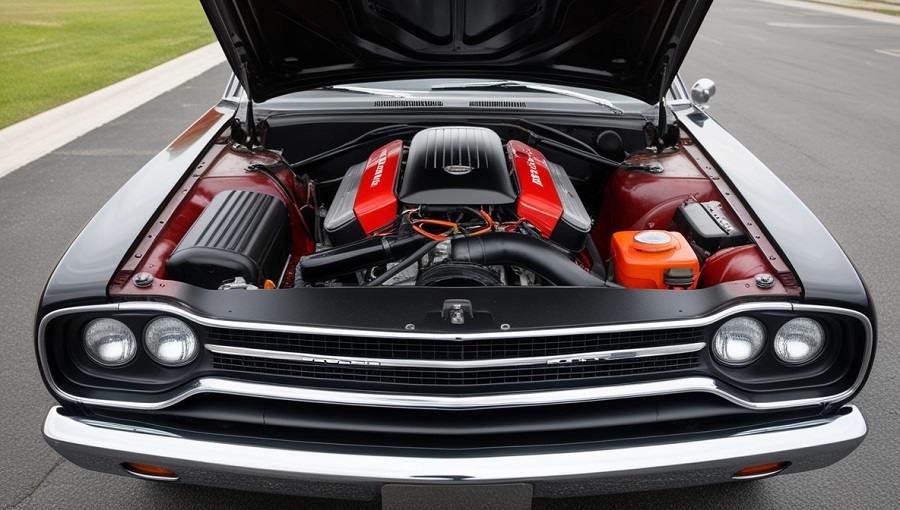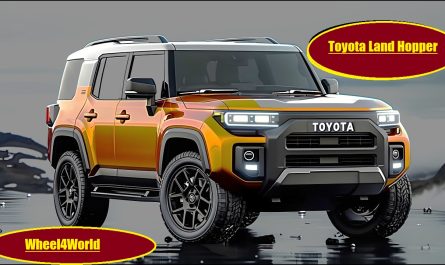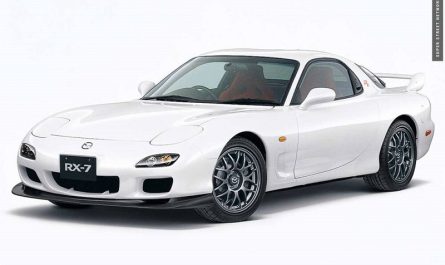Introduction
Dodge Dart, a mid-sized automobile produced by the Chrysler Corporation from 1960 to 1976, has left an indelible mark on the

American automotive landscape. Its distinctive design, performance capabilities, and cultural significance have solidified its place as a timeless classic.
A Brief History of Dodge Dart
The Dodge Dart was introduced in 1960 as a replacement for the Dodge Coronet. Initially offered as a two-door sedan and a four-door sedan, the Dart quickly gained popularity due to its stylish appearance and affordable price point. Over the years, the model underwent numerous changes and updates, including the addition of various body styles such as station wagons, convertibles, and performance-oriented muscle cars.
Importance and Influence
The Dodge Dart played a crucial role in the development of the American automotive market. Its affordability and versatility made it accessible to a wide range of consumers, contributing to the company’s success. The Dart’s influence can be seen in the design and engineering of subsequent Chrysler models, as well as in the overall evolution of the midsize sedan segment.
Body Styles
The Dodge Dart was offered in a variety of body styles to suit different preferences and budgets.
Body Styles
- Sedan: The most common body style, the sedan offered practicality and comfort for everyday driving.
- Coupe: Sleek and sporty, the coupe was a popular choice for performance enthusiasts.
- Convertible: The convertible offered open-air driving enjoyment and a sense of freedom.
Trims
The Dodge Dart was offered in a variety of trims to suit different preferences and budgets.
- Dart Swinger: Introduced in 1967, the Swinger was a performance-oriented trim level that featured a more aggressive exterior and a powerful engine.
- Dart GTS: The GTS was the top-of-the-line trim level, offering luxury features, a powerful engine, and a sporty suspension.
- Dart Demon: A limited-production muscle car, the Demon was equipped with a high-performance engine, a racing-inspired suspension, and a stripped-down interior.
The Dart’s Legacy
The Dodge Dart ‘s legacy extends beyond its time in production. Its stylish design, performance capabilities, and affordability have made it a sought-after classic car among collectors and enthusiasts. The Dart’s impact on the automotive industry can still be felt today, as its design elements and performance features have influenced many subsequent models.
A Popular Choice for a Generation
Dodge Dart success can be attributed to several factors. Its sleek, stylish design, coupled with its affordability, made it a desirable choice for young families and performance enthusiasts alike. The car’s versatility allowed it to cater to a wide range of driving needs, from daily commutes to weekend getaways and even drag racing.
A Muscle Car Legacy
While the Dart was primarily a midsize car, it also played a significant role in the American muscle car scene. The Dodge Dart GTS, introduced in 1968, was a performance-oriented variant that offered impressive power and handling. Equipped with a variety of powerful engines, including the legendary 340 cubic inch V8, the GTS could compete with other muscle car icons like the Ford Mustang and Chevrolet Camaro.
Engines
Over its production run, the Dodge Dart was offered with a variety of engine options, each tailored to meet different driving

needs and preferences:
1. Slant-6
One of the most iconic engines to grace the Dodge Dart was the Slant-6, a durable and fuel-efficient powerplant that became synonymous with the model. Its unique design, characterized by its inclined cylinder banks, provided a compact and lightweight package, making it ideal for a wide range of applications.
2. V8
For those seeking more exhilarating performance, the Dodge Dart also offered V8 engine options. These larger-displacement power plants delivered substantial torque and horsepower, transforming the Dart into a formidable force on the road. The V8-powered Dart was particularly popular among enthusiasts who sought a muscle car experience.
Performance Variants: A Cult Following
The Dodge Dart’s appeal was further enhanced by the availability of several performance-oriented variants. The Dart GT, introduced in 1967, was a popular choice for drivers who wanted a more aggressive and sporty driving experience. Equipped with a powerful V8 engine, upgraded suspension components, and distinctive styling cues, the Dart GT offered a thrilling blend of performance and style.For those seeking even more extreme performance, the Dodge Dart GTS was the ultimate choice. This high-performance model featured a larger-displacement V8 engine, a stiffer suspension, and a more aggressive exterior design. The Dart GTS was a true muscle car, capable of delivering exhilarating acceleration and cornering prowess.
Exterior Design
Dodge Dart exterior was characterized by its clean, muscular lines and distinctive grille. The front grille, often featuring a prominent horizontal bar or a unique pattern, was a hallmark of the Dart’s identity. The car’s side profile was defined by its long hood, flowing roofline, and tapered rear end. The taillights, particularly those on later models, were often circular or rectangular and featured a distinctive design.
Interior Design
Dodge Dart interior was designed with both comfort and style in mind. The dashboard was typically characterized by its simplicity and clean layout. The seats, often upholstered in vinyl or cloth, were known for their comfort and support. The overall interior feel was one of spaciousness and refinement.
Innovations in Styling
The Dart introduced several innovative styling elements that set it apart from its competitors. One such innovation was the use of hidden headlights, which were concealed behind a smooth, unbroken front fascia. This design element gave the Dodge Dart a sleek and modern appearance. Additionally, the Dart often featured unique wheel designs and trim accents that further enhanced its visual appeal.
Reintroduction of the Dodge Dart
The Dodge Dart, a name synonymous with American muscle cars of the 1960s and 1970s, made a surprising comeback in 2013.The 2013 Dart marked a significant departure from its classic roots. It was a front-wheel-drive, four-door sedan built on a platform shared with the Alfa Romeo Giulietta. This European influence was evident in the car’s styling, which was both stylish

and sporty. The Dart offered a range of engines, including a turbocharged four-cylinder that provided a decent balance of performance and fuel efficiency.A combination of factors, including intense competition from established rivals and a lack of brand recognition for the modern Dart, contributed to its eventual discontinuation in 2016.
Fiat-Chrysler’s Role in the Modern Redesign
Fiat-Chrysler played a crucial role in the Dart’s modern redesign. The Italian-American automaker acquired Chrysler in 2009 and sought to revitalize the brand. The Dodge Dart was part of this effort, as it represented a new direction for Dodge. By leveraging its European engineering expertise and design resources, Fiat-Chrysler aimed to create a car that would appeal to a wider range of buyers.
Comparison with Competitors
The Dodge Dart, produced from 1960 to 1976, competed with American muscle cars like the Ford Falcon and Chevrolet Chevy II in its early years. Later, it faced competition from imported models like the Toyota Corolla and Datsun 510. Its strengths included distinctive styling, a comfortable interior, and various engine options. However, it also faced issues with build quality and rust.
Unique and Interesting Facts
- The Dart’s Name: The name “Dart” was chosen to convey a sense of speed and agility. It was originally intended to be used for a high-performance sports car, but eventually, the name was applied to a more mainstream model.
- The Swinger: One of the most iconic versions of the Dodge Dart was the Swinger, a sporty trim level introduced in 1965. The Swinger featured unique styling cues, including a distinctive grille and side stripes.
- The Demon: In 1970, Dodge introduced the Dart Demon, a high-performance muscle car that was designed to compete with the Chevrolet Camaro and Ford Mustang. The Demon was powered by a powerful 340 cubic inch V8 engine and featured a bold and aggressive appearance.
- The Dart’s Unexpected Success: Despite facing stiff competition from the Ford Mustang and Chevrolet Camaro, the Dodge Dart managed to achieve moderate success. It was particularly popular in the southern United States, where it was often used as a family car or for towing trailers.
- The Dart’s Legacy: Although production of the Dodge Dart ceased in 1976, its legacy lives on. The car has become a popular choice among collectors and enthusiasts, and its distinctive styling and performance have made it a sought-after classic.
Movie Appearances
The Dodge Dart has appeared in several films and television shows over the years. One notable example is the 1971 movie “The French Connection,” in which a Dart was used in a high-speed chase scene.
Celebrity Owners
While the Dart may not have been as popular among celebrities as some other cars, it has been owned by a few notable figures. One example is the late actor James Dean, who owned a 1955 Dodge Dart.
Pop Culture Mentions
The Dodge Dart has been referenced in popular culture on several occasions. For example, the band The Who featured a Dart on the cover of their album “Who’s Next.”
Price
- Used Dodge Dart (2013-2016): The average price for a used Dodge Dart from these model years typically ranges from $4,000 to $10,000. This can vary significantly depending on the factors mentioned above.
- Classic Dodge Darts (1960s-1970s): The value of classic Dodge Darts can range widely, from a few thousand dollars to six figures or more. Factors like condition, rarity, and performance options play a significant role in determining the price.
Conclusion
The Dodge Dart, a mid-sized American muscle car, has left an indelible mark on automotive history. Its sleek design, powerful engines, and distinctive styling have made it a beloved icon among car enthusiasts. Whether you’re drawn to its retro charm or its performance capabilities, the Dart offers a unique and rewarding driving experience. As a testament to its enduring appeal, the Dart continues to be a sought-after collector car, ensuring that its legacy will live on for generations to come.


